2 MODULE 2
Sound
WITH SPOTLIGHT LESSONS ON Objects in the Sky
TEXAS

SCIENCE LOGBOOK LE VEL
Level 2 Module 2: Sound
WITH SPOTLIGHT LESSONS ON Objects in the Sky
Science Logbook
Student Name:
TEXAS
Great Minds® is the creator of Eureka Math® , Eureka Math2® , Wit & Wisdom®, and PhD Science®
Published by Great Minds PBC greatminds.org
© 2024 Great Minds PBC. Except where otherwise noted, this content is published under a limited public license with the Texas Education Agency. Use limited to noncommercial educational purposes. Where indicated, teachers may copy pages for use by students in their classrooms. For more information, visit https://gm.greatminds.org/texas. Printed
ISBN 979-8-88588-540-9
in the USA A-Print 1 2 3 4 5 6 7 8 9 10 XXX 28 27 26 25 24
© Great Minds PBC iii LEVEL 2 MODULE 2 Contents Sound Lesson 2 Activity Guide: Observe Recycled Instruments ��������������� 3 Lesson 3 Activity Guide: Create a Model ������������������������������������ 5 Lesson 5 Activity Guide: Visit Instrument Stations ���������������������� 7 Lesson 6 Activity Guide: Support a Claim ��������������������������������� 11 Lesson 7 Activity Guide: Observe Common Objects �������������������� 13 Lesson 8 Activity Guide: Visit Recycled Ukulele Stations ������������� 17 Lesson 9 Activity Guide: Describe Objects �������������������������������� 19 Lesson 11 Activity Guide: Create a Sound Model ����������������������� 21 Lesson 12 Activity Guide: Investigate Sound Outside a Door ������������������������������������������������������������������������������� 23 Lesson 13 Activity Guide: Investigate Sound Outdoors ���������������� 25
© Great Minds PBC iv Level 2 ▸ Sound | Objects in the Sky ▸ Contents PhD SCIENCE® TEXAS Lesson 14 Activity Guide: Write an Explanation ������������������������� 27 Lesson 16 Activity Guide: Make a Prediction ����������������������������� 29 Lesson 19 Activity Guide: Visit Message Stations ����������������������� 31 Lesson 20 Activity Guide: Visit Communication Device Stations � ��� 33 Lesson 21 Activity Guide A: Engineering Design Process ������������� 37 Lesson 21 Activity Guide B: Engineering Challenge �������������������� 39 Lesson 27 Activity Guide: Observe a Cup with String ������������������ 47 Lesson 28 Activity Guide A: Test a Cup Telephone ���������������������� 49 Lesson 28 Activity Guide B: Observe a Cup Telephone ���������������� 51 Objects in the Sky Lesson 1 Activity Guide: Discuss Pictures ��������������������������������� 55 Lesson 2 Activity Guide: Compare Pictures of the Sun ���������������� 58 Lesson 3 Activity Guide: Draw a Model ������������������������������������ 61 Lesson 4 Activity Guide: Investigate Light ��������������������������������� 63
TEXAS
Sound
Name: LESSON 2 ACTIVITY GUIDE
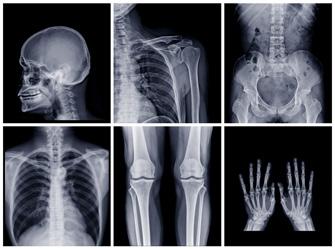
Observe Recycled Instruments
Circle which objects you see.
Oil can


Fork
Pillows
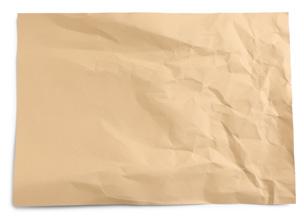

Food can
Wooden spoon


Bottle caps Paper
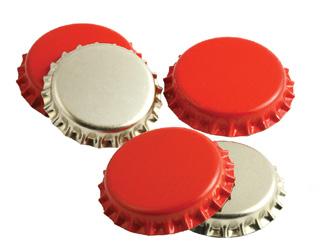
PhD SCIENCE® TEXAS Level 2 ▸ Sound ▸ Lesson 2 ▸ Activity Guide © Great Minds PBC 3
X-ray film
Name: LESSON 3 ACTIVITY GUIDE
Create a Model
How does the Recycled Orchestra make music?
Draw or glue pictures to create a model. Label your model.
PhD SCIENCE® TEXAS Level 2 ▸ Sound ▸ Lesson 3 ▸ Activity Guide © Great Minds PBC 5
Name: LESSON 5 ACTIVITY GUIDE
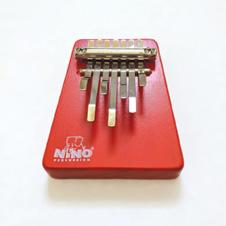


PhD SCIENCE® TEXAS Level 2 ▸ Sound ▸ Lesson 5 ▸ Activity Guide © Great Minds PBC 7
Visit Instrument Stations Instrument
or draw your evidence.
Drum Kalimba
Glue
Ukulele
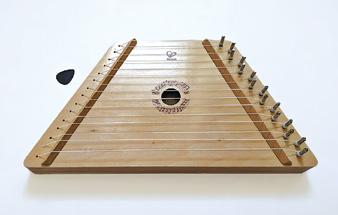


PhD SCIENCE® TEXAS Level 2 ▸ Sound ▸ Lesson 5 ▸ Activity Guide © Great Minds PBC 9 Instrument Glue or draw your evidence. Lap harp Triangle Guiro
Name: LESSON 6 ACTIVITY GUIDE
Support a Claim
Circle the claim that the evidence supports.
▪ Only the ukulele makes sound by vibrating.
▪ Some of the instruments make sound by vibrating.
▪ All the instruments make sound by vibrating.
Write your evidence.
PhD SCIENCE® TEXAS Level 2 ▸ Sound ▸ Lesson 6 ▸ Activity Guide © Great Minds PBC 11
Name: LESSON 7 ACTIVITY GUIDE
Observe Common Objects
Draw and label a model to show how the ruler makes sound.
PhD SCIENCE® TEXAS Level 2 ▸ Sound ▸ Lesson 7 ▸ Activity Guide © Great Minds PBC 13
Object
Rubber band Folder
Draw and label to show how the object makes sound.
Level 2 ▸ Sound ▸ Lesson 7 ▸ Activity Guide PhD SCIENCE® TEXAS © Great Minds PBC 14
Clipboard
Explain how the rubber band, folder, and clipboard make sound.
PhD SCIENCE® TEXAS Level 2 ▸ Sound ▸ Lesson 7 ▸ Activity Guide © Great Minds PBC 15
Name: LESSON 8 ACTIVITY GUIDE
Visit Recycled Ukulele Stations
Observe the recycled ukuleles.
Kind of Strings
Do the strings sound like ordinary ukulele strings?
Do the strings look and feel like ordinary ukulele strings?

Do the strings move like ordinary ukulele strings?


PhD SCIENCE® TEXAS Level 2 ▸ Sound ▸ Lesson 8 ▸ Activity Guide © Great Minds PBC 17
Ribbon Yes No Yes No Yes No Rubber bands Yes No Yes No Yes No Chenille stems Yes No Yes No Yes No
Name: LESSON 9 ACTIVITY GUIDE
Describe Objects
Observe the objects that work well as inner pieces.
How are the objects similar to the pieces inside an ordinary shaker?
PhD SCIENCE® TEXAS Level 2 ▸ Sound ▸ Lesson 9 ▸ Activity Guide © Great Minds PBC 19
Observe the objects that work well as the outer shell.
How are the objects similar to the shell of an ordinary shaker?
Level 2 ▸ Sound ▸ Lesson 9 ▸ Activity Guide PhD SCIENCE® TEXAS © Great Minds PBC 20
Name: LESSON 11 ACTIVITY GUIDE
Create a Sound Model
Draw or label to show what happens to the sound.
PhD SCIENCE® TEXAS Level 2 ▸ Sound ▸ Lesson 11 ▸ Activity Guide © Great Minds PBC 21
Name: LESSON 12 ACTIVITY GUIDE
Write how the instruments sound.
The instruments sound .
PhD SCIENCE® TEXAS Level 2 ▸ Sound ▸ Lesson 12 ▸ Activity Guide © Great Minds PBC 23
Investigate Sound Outside a Door
The instruments sound .
Level 2 ▸ Sound ▸ Lesson 12 ▸ Activity Guide PhD SCIENCE® TEXAS © Great Minds PBC 24
Name: LESSON 13 ACTIVITY GUIDE
PhD SCIENCE® TEXAS Level 2 ▸ Sound ▸ Lesson 13 ▸ Activity Guide © Great Minds PBC 25
Investigate Sound Outdoors Write the level of sound heard from the instruments. 1
2 3
Name: LESSON 14 ACTIVITY GUIDE
Write an Explanation
What happens when sound reaches the eardrum? Write an explanation.
PhD SCIENCE® TEXAS Level 2 ▸ Sound ▸ Lesson 14 ▸ Activity Guide © Great Minds PBC 27
Name: LESSON 16 A CTIVITY GUIDE
Make a Prediction
The balloon will vibrate if I tap the pie tin .
Explain your answer.
PhD SCIENCE® TEXAS Level 2 ▸ Sound ▸ Lesson 16 ▸ Activity Guide © Great Minds PBC 29
The balloon will not vibrate if I tap the pie tin . Explain your answer.
Level 2 ▸ Sound ▸ Lesson 16 ▸ Activity Guide PhD SCIENCE® TEXAS © Great Minds PBC 30
Name: LESSON 19 ACTIVITY GUIDE


Visit Message Stations
How many listeners received the message?

PhD SCIENCE® TEXAS Level 2 ▸ Sound ▸ Lesson 19 ▸ Activity Guide © Great Minds PBC 31
Instrument Number of Listeners Ukulele 1 2 3 Drum 1 2 3 Kalimba 1 2 3
Number of Listeners



Level 2 ▸ Sound ▸ Lesson 19 ▸ Activity Guide PhD SCIENCE® TEXAS © Great Minds PBC 32 Instrument
Lap harp 1 2 3 Triangle 1 2 3 Guiro 1 2 3

PhD SCIENCE® TEXAS Level 2 ▸ Sound ▸ Lesson 20 ▸ Activity Guide © Great Minds PBC 33
Visit Communication Device Stations Device Write the message. Circle how people sense the message. Circle the level of sound you hear. Wands Hear See Feel No sound Quiet Loud
Name: LESSON 20 ACTIVITY GUIDE


Level 2 ▸ Sound ▸ Lesson 20 ▸ Activity Guide PhD SCIENCE® TEXAS © Great Minds PBC 34 Device Write the message. Circle how people sense the message. Circle the level of sound you hear. Smoke alarm Hear See Feel No sound Quiet Loud Traffic signals Hear See Feel No sound Quiet Loud

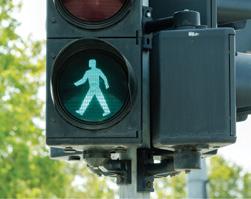
PhD SCIENCE® TEXAS Level 2 ▸ Sound ▸ Lesson 20 ▸ Activity Guide © Great Minds PBC 35 Device Write the message. Circle how people sense the message. Circle the level of sound you hear. Ambulance Hear See Feel No sound Quiet Loud Crosswalk signals Hear See Feel No sound Quiet Loud

Level 2 ▸ Sound ▸ Lesson 20 ▸ Activity Guide PhD SCIENCE® TEXAS © Great Minds PBC 36 Device Write the message. Circle how people sense the message. Circle the level of sound you hear. Flags Hear See Feel No sound Quiet Loud
Name: LESSON 21 ACTIVITY GUIDE A
PhD SCIENCE® TEXAS Level 2 ▸ Sound ▸ Lesson 21 ▸ Activity Guide A © Great Minds PBC 37
Improve Imagine Plan Create Ask Share
Engineering Design Process
Name: LESSON 21 ACTIVITY GUIDE B
Engineering Challenge
Ask
What is the problem? Write or draw your answer.
PhD SCIENCE® TEXAS Level 2 ▸ Sound ▸ Lesson 21 ▸ Activity Guide B © Great Minds PBC 39
Imagine
Material
How did you make the sound?
How loud was the sound?
Water bottle

Jewelry box
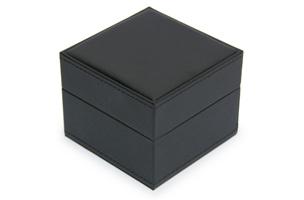
Quiet Loud Very loud
Quiet Loud Very loud
Level 2 ▸ Sound ▸ Lesson 21 ▸ Activity Guide B PhD SCIENCE® TEXAS © Great Minds PBC 40
Material
How did you make the sound?
How loud was the sound?
Soup can

Pie tin
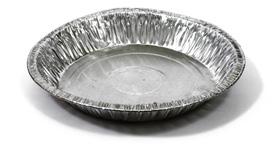
Quiet Loud Very loud
Quiet Loud
Very loud
PhD SCIENCE® TEXAS Level 2 ▸ Sound ▸ Lesson 21 ▸ Activity Guide B © Great Minds PBC 41
What parts will your device have?
1. Draw your group’s design.
2. Label the materials.
Level 2 ▸ Sound ▸ Lesson 21 ▸ Activity Guide B PhD SCIENCE® TEXAS © Great Minds PBC 42
Plan
PhD SCIENCE® TEXAS Level 2 ▸ Sound ▸ Lesson 21 ▸ Activity Guide B © Great Minds PBC 43 Message How will you send the message? Listen Line up
Which message will you send?
How many people received the message?
Level 2 ▸ Sound ▸ Lesson 21 ▸ Activity Guide B PhD SCIENCE® TEXAS © Great Minds PBC 44 Create Test
A Listen Line Up B Listen Line Up C Listen Line
Up
Yes No
Does your device solve the problem?
PhD SCIENCE® TEXAS Level 2 ▸ Sound ▸ Lesson 21 ▸ Activity Guide B © Great Minds PBC 45 Improve Test Which message will you send? How many people received the message? D Listen Line Up E Listen Line Up F Listen Line Up Does your improved device solve the problem? Yes No
Analysis
1. Copy your data for each test.
2. Add the numbers of people. This is the total for each device.
3. Circle the total.
Number of People Who Received the Message
Number of People Who Received the Message
Level 2 ▸ Sound ▸ Lesson 21 ▸ Activity Guide B PhD SCIENCE® TEXAS © Great Minds PBC 46
Device Test
First
A B C Total
Device Test
Improved
D E F Total
Name: LESSON 2 7 ACTIVITY GUIDE
Observe a Cup with String
Action
What do you observe?
Throat vibrates
Throat does not vibrate
Cup vibrates Cup does not vibrate
String vibrates
String does not vibrate
Sound inside cup No sound inside cup
PhD SCIENCE® TEXAS Level 2 ▸ Sound ▸ Lesson 27 ▸ Activity Guide © Great Minds PBC 47
PhD SCIENCE® TEXAS Level 2 ▸ Sound ▸ Lesson 28 ▸ Activity Guide A © Great Minds PBC 49 Name: LESSON 28 ACTIVITY GUIDE A
Telephone Voice Did you receive the messages? Whispered Yes No Talked Yes No
Test a Cup
Name: LESSON 2 8 ACTIVITY GUIDE B
Observe a Cup Telephone
Which parts vibrate when the speaker talks?
Draw or in each circle.
Throat
Cup Cup String
PhD SCIENCE® TEXAS Level 2 ▸ Sound ▸ Lesson 28 ▸ Activity Guide B 51
© Great Minds PBC
Objects in the Sky
TEXAS
Name: LESSON 1 ACTIVITY GUIDE
Discuss Pictures
For each picture, place the turtle on the sand. What do you think the turtle sees on the horizon? Discuss with your partner.


PhD SCIENCE® TEXAS Level 2 ▸ Objects in the Sky ▸ Lesson 1 ▸ Activity Guide © Great Minds PBC 55


Level 2 ▸ Objects in the Sky ▸ Lesson 1 ▸ Activity Guide PhD SCIENCE® TEXAS © Great Minds PBC 56
Name: LESSON 2 ACTIVITY GUIDE
Compare Pictures of the Sun




Without Telescope
With Telescope
Level 2 ▸ Objects in the Sky ▸ Lesson 2 ▸ Activity Guide PhD SCIENCE® TEXAS © Great Minds PBC 58
Complete the charts.
What is the same about the pictures?
What is different about the pictures? Without Telescope With Telescope
PhD SCIENCE® TEXAS Level 2 ▸ Objects in the Sky ▸ Lesson 2 ▸ Activity Guide © Great Minds PBC 59
Name: LESSON 3 ACTIVITY GUIDE
Draw a Model
What illuminates the ocean at night? Draw a model.
Explain your model.
PhD SCIENCE® TEXAS Level 2 ▸ Objects in the Sky ▸ Lesson 3 ▸ Activity Guide © Great Minds PBC 61
Name: LESSON 4 ACTIVITY GUIDE
PhD SCIENCE® TEXAS Level 2 ▸ Objects in the Sky ▸ Lesson 4 ▸ Activity Guide © Great Minds PBC 63
the words that describe how the light changes. Object Light on Ceiling Light on Paper Soda can Gets brighter Gets darker No change Gets brighter Gets darker No change Index card Gets brighter Gets darker No change Gets brighter Gets darker No change Mirror Gets brighter Gets darker No change Gets brighter Gets darker No change Plastic blocks Gets brighter Gets darker No change Gets brighter Gets darker No change
Investigate Light Circle
Credits
Great Minds® has made every effort to obtain permission for the reprinting of all copyrighted material. If any owner of copyrighted material is not acknowledged herein, please contact Great Minds for proper acknowledgment in all future editions and reprints of this logbook.
Sound
Page 3 (oil can), xpixel/Shutterstock.com, (fork), FabrikaSimf/Shutterstock.com, (food can), Bildagentur Zoonar GmbH/Shutterstock.com, (pillows), PhotoSGH/Shutterstock.com, (wooden spoon), Lifestyle Travel Photo/Shutterstock.com, (x-ray film), ChooChin/Shutterstock.com, (bottle caps), gimsy/Shutterstock.com, (paper), New Africa/Shutterstock.com; page 17 (from top), xpixel/Shutterstock.com, Quang Ho/Shutterstock.com, Dorling Kindersley: Lol Johnson/Getty Images; pages 21, 23, 24, Rvector/Shutterstock.com; page 33, Svitlana Hulko/Shutterstock.com; page 34 (top), kongpons/Shutterstock.com, (bottom), Kypros/Moment/Getty Images; page 35 (top), OgnjenO/Shutterstock.com, (bottom), Srdjan Randjelovic/Shutterstock.com; page 36, Bundit Yuwannasiri/Shutterstock.com; page 40 (top), AlenKadr/Shutterstock.com, (bottom), cocoo/Shutterstock.com; page 41 (top), Bergamont/Shutterstock.com, (bottom), Jose Gil/Shutterstock.com
All other images are the property of Great Minds.
Objects in the Sky
Page 55 (top), Preto Perola/Shutterstock.com, (bottom), icemanphotos/Shutterstock.com; pages 56 (top), (bottom), Lifestyle Travel Photo/Shutterstock.com; page 58 (top left), Valerie Chipperfield/Shutterstock.com, (bottom left), Anatoly Vartanov/Alamy Stock Photo (top right, bottom right), John Chumack/Galactic Images
All other images are the property of Great Minds.
© Great Minds PBC 65
Bibliography Acknowledgments
Great Minds® Staff
The following writers, editors, reviewers, and support staff contributed to the development of this curriculum:
Amanda Abbood, Nashrah Ahmed, Maria Albina, Ana Alvarez, Lindsay Arensbak, Lynne Askin-Roush, Marissa Axtell, Brian Aycock, Keith Bannister, Nina Barcelli, Trevor Barnes, John Barnett, Greg Bartus, Michele Baskin, Koi Beard, Tocarra Bell, Brianna Bemel, Kerry Benson, Sanobar Bhaidani, David Blair, Ranell Blue, Jennifer Bolton, Sandy Brooks, Bridget Brown, Taylor Brown, Dan Brubaker, Carolyn Buck, Sharon Buckby, Lisa Buckley, Kristan Buckman, Becky Bundy, Sarah Bushnell, Eric Canan, Adam Cardais, Crystal Cizmar, Emily Cizmas, Rolanda Clark, Elizabeth Clarkin-Breslin, Christina Cooper, Kim Cotter, Karen Covington, Gary Crespo, Madeline Cronk, Lisa Crowe, Allison Davidson, Kristin Davis, Brandon Dawson, Megan Dean, Katherine DeLong, Julie Dent, Jill Diniz, Erin Doble, Delsena Draper, Amy Dupre, Jami Duty, Jessica Dyer, Lily Eisermann, Alison Engel, Sandy Engelman, Tamara Estrada, Lindsay Farinella, De Edra Farley, Ubaldo Feliciano-Hernández, Molly Fife, Lisa Fiorilli, Soudea Forbes, Mark Foster, Richard Fox, Peter Fraser, Reba Frederics, Liz Gabbard, Diana Ghazzawi, Lisa Giddens-White, Patricia Gilbert, Ellen Goldstein, Laurie Gonsoulin, Pamela Goodner, Kristen Gray, Lorraine Griffith, Dennis Hamel, Heather Harkins, Cassie Hart, Kristen Hayes, Sarah Henchey, Marcela Hernández, Abbi Hoerst, Jessica Holman, Missy Holzer, Matthew Hoover, Robert Hunter, Jennifer Hurd, Rachel Hylton, Robert Ingram Jr., Mamie Jennings, Reagan Johnson, Yuria Joo, Marsha Kaplan, Frankie Katz, Ashley Kelley, Robert Kelly, Lisa King, Suzanne Klein, Betsy Kolodziej, Sarah Kopec, Jenny Kostka, Drew Krepp, Rachel Lachiusa, Brittany Langlitz, Mike Latzke, Lori Leclair, Catherine Lee, Jennifer Leonberger, Jessica Levine, Caren Limbrick, Latoya Lindsay, Sarah Lomanno, Katherine Longo, Scott Loper, Susan Lyons, Kristi Madden, David Malone, Carolyn Mammen, Katrina Mangold, Stacie McClintock, Miranda McDaniel, Megan McKinley-Hicks, Cindy Medici, Ivonne Mercado, Sandra Mercado, Kevin Mesiar, Patty Messersmith, Brian Methe, Patricia Mickelberry, Marisa Miller, Sara Montgomery, Melissa Morgan, Mackenzie Most, Lynne Munson, Mary-Lise Nazaire, Corinne Newbegin, Darin Newton, Bekka Nolan, Tara O’Hare, Gillia Olson, Max Oosterbaan, Tamara Otto, Catherine Paladino, Meagan Palamara, Christine Palmtag, Mallory Park, Marya Parr, Joshua Paschdag, Emily Paulson, Emily Peterson, Margaret Petty, Nina Phelps, Jeffrey Plank, Judy Plazyk, Amelia Poppe, Lizette Porras, Jeanine Porzio, Jennifer Raspiller, Dan Ray, Brianna Reilly, Jocelyn Rice, Leandra Rizzo, Sally Robichaux, Cortni Robinson, Jeff Robinson, Todd Rogers, Karen Rollhauser, Allyson Romero, Angel Rosado Vega, Carol Rose, Angela Rothermel, Kim Rudolph, Megan Russo, Isabel Saraiva, Vicki Saxton, Michelle Schaut, Lauren Scheck, Gina Schenck, Stephanie Schoembs, Amy Schoon, Jesse Semeyn, Rudolph Shaffer, Khushali Shah, Nawshin Sharif,
© Great Minds PBC 66
Lawrence Shea, Aaron Shields, Cindy Shimmel, Maria Shingleton, Melissa Shofner, Erika Silva, Kerwyn Simpson, Laura Sirak-Schaeffer, Amy Snyder, Victoria Soileau, Rachel Stack, Isaac Stauffer, Leigh Sterten, Marianne Strayton, Mary Sudul, Lisa Sweeney, Elizabeth Szablya, Annie Wentz Tete, Heidi Theisen, Brian Thompson, Lauren Trahan, Olga Tuman, Kimberly Tyler, Jennifer VanDragt, Tracy Vigliotti, Freddy Wang, Lara Webb, Dave White, Charmaine Whitman, Erica Wilkins, Tiffany Williams, Erin Wilson, Mark Wise, Glenda Wisenburn-Burke, Armetta Wright, Howard Yaffe, Nazanene Yaqubie, Christina Young, Amy Zaffuto, Cat Zarate, and Suzanne Zimbler.
Colleagues and Contributors
We are grateful for the many educators, writers, and subject-matter experts who made this program possible.
Tricia Boese, Thomas Brasdefer, Andrew Chen, Arthur Eisenkraft, Pat Flanagan, Rachel Gritzer, Fran Hess, Kim Marcus, Fred Myers, Jim O’Malley, Neela Roy, Ed Six, and Larry Stowe
PhD SCIENCE® TEXAS Level 2 ▸ Sound | Objects in the Sky ▸ Acknowledgments © Great Minds PBC 67
In one special orchestra, all the instruments are made from objects found in the trash. Kids play guitars that used to be metal cans and flutes made of pipes. How do these unusual instruments make music? Find out by exploring sound. Investigate with instruments and balloons. Uncover what causes sound, observe the way sound travels, and build your own musical instrument.
In the Spotlight: A sea turtle hatches on a beach and finds its way into the ocean. What helps it get to the water? To find answers, view the beach as a turtle does. Compare day and night and explore the sky above. Along the way, ask yourself, How does my new knowledge help me understand the world?
LEVEL 2 MODULES
1 MATTER with Spotlight Lessons on Weather Events
2 SOUND with Spotlight Lessons on Objects in the Sky
3 PLANTS with Spotlight Lessons on Living Things and Their Environments
ON THE COVER
Out Chorus, 1979–1980
Romare Bearden, American, 1911–1988

Etching, aquatint, and screen print in colors with hand coloring on paper
Licensed by VAGA at Artists Rights Society (ARS), NY
ISBN 979-8-88588-540-9
Great Minds® brings teachers and scholars together to craft exemplary instructional materials that inspire joy in teaching and learning. PhD Science®, Eureka Math®, Eureka Math2 ®, and our English curriculum Wit & Wisdom® all give teachers what they need to take students beyond rote learning to provide a deeper, more complete understanding of the sciences, mathematics, and the humanities.
TEXAS
© 2022 Romare Bearden Foundation
798885 885409 A 9








































